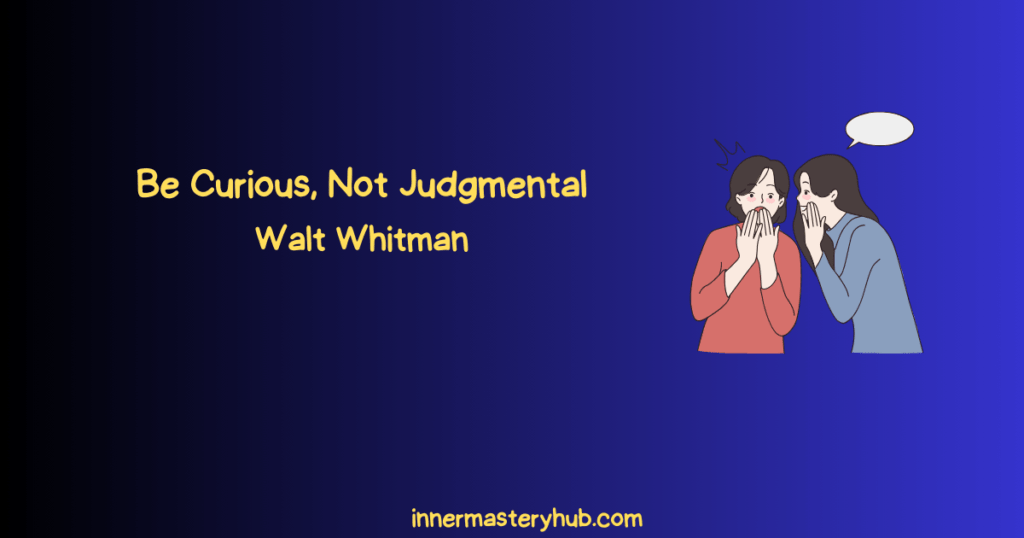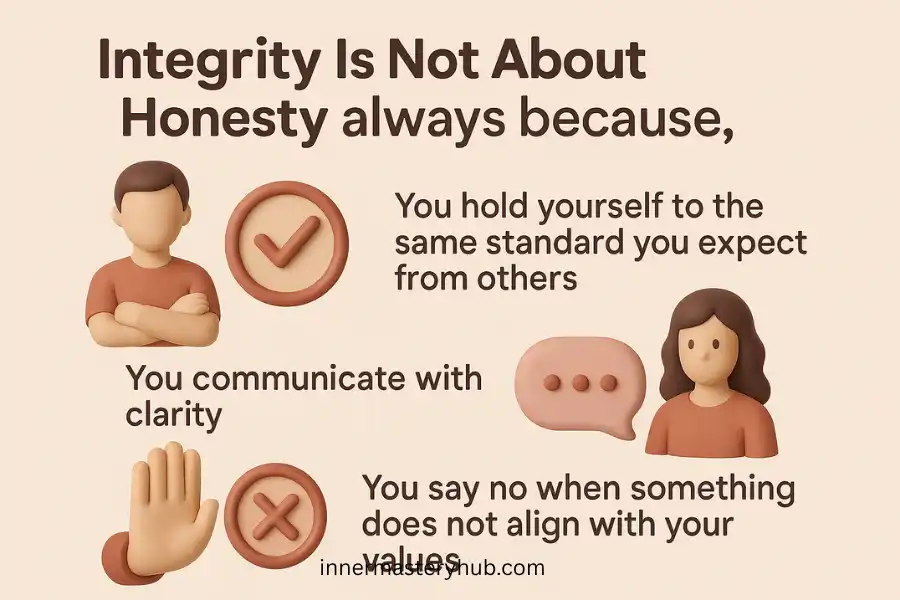50+ Deep Philosophical Questions That Help You Heal and Find Meaning
Philosophical questions about reality, knowledge, free will, meaning, love, justice, and death are not merely abstract debates. Research shows that reflecting on these topics can strengthen your emotional regulation, increase resilience, reduce anxiety about uncertainty, and help you find meaning and psychological flexibility.

The majority of people believe that philosophy, abstract discussions about reality, logic, and existence, belongs in classrooms. But philosophy and everyday life are closely related. It exists at the quiet times when you’re feeling overburdened, wondering why there is pain, questioning your purpose, or having anxiety that keeps you up at night.
Philosophical questions are not only cerebral exercises; they are also transformative experiences. You are attempting to handle doubt, anxiety, and bewilderment when you ask questions such as, “What is the meaning of life?” or “Do I really have control over my choices?” Trying to understand your inner world is what you’re doing.
Philosophy has helped people deal with injustice, deal with grief, face their mortality, and deal with uncertainty throughout history. The most profound questions concerning truth, knowledge, free choice, and death are also enquiries concerning mental stamina.
What is a philosophical question?
Questions that explore basic characteristics of existence, such as knowledge, values, and reason, are regarded as philosophical. They also examine the intellect, language, and other mental processes. These are challenging topics that usually spark discussion and introspection.
The question, “What’s the meaning of living?” may cross your mind. “What is the meaning of life?” and “Do we possess free will?” are some questions you may have. These philosophical questions inspire you to critically consider the nature of reality and our role in it.
Philosophical Questions About Reality and Existential Anxiety
It might be unsettling to question reality. “Is any of this real?” and “What if everything I believe is wrong?” are examples of thoughts that might cause worry. However, these enquiries indicate awareness rather than instability.
Reality has always been studied by philosophy. Psychology now shows that our perception of reality, and the emotions it evokes, directly impact regulation. Anxiety rises when our perspective seems unstable. Emotional resilience increases as we develop a grounded perspective.
According to cognitive psychology research, one of the biggest causes of stress is ambiguity1. Under the right direction, philosophical contemplation enables us to accept ambiguity rather than fear it.
What is Reality?
Reality seems straightforward. It resembles the world we see, feel, and encounter regularly. Philosophers such as Plato and René Descartes, however, questioned whether or not our senses provide us with reliable knowledge.
Descartes famously concluded that “I think, therefore I am” after questioning everything, including his senses. His wisdom was intended to bring clarity rather than fear. Your consciousness shows your existence, even in the face of uncertainty.
This grounding method is supported by modern psychology. Research on mindfulness demonstrates that focusing attention on conscious awareness lowers rumination and anxiety2. You can concentrate on the current experience instead of worrying about the stability of reality.
Questioning reality does not have to destabilize you. It can shift you from blind assumption to conscious awareness.
Are We Living in a Simulation?
According to philosopher Nick Bostrom’s simulation hypothesis, sophisticated civilisations may be able to produce lifelike simulations, and we may even be inside one3.
This concept initially seems unsettling. It could cause existential anxiety, which is the worry that life is meaningless.
Nonetheless, existential psychology research demonstrates that people find ambiguity about existence extremely uncomfortable. The loss of apparent control is what causes the worry, not the idea itself4.
The key emotional shift, however, is that your feelings, relationships, and decisions still seem real to you even if reality were a simulation. Your experience is still important.
Research on Terror Management Theory demonstrates that when people are reminded of existential uncertainty, they respond more effectively when reminded of their own values and significance5.
The simulation question does not remove meaning; it challenges you to define it more intentionally.
Is There a Reality Apart from What We See?
Philosophers question whether reality is deeper than our perceptions. According to neuroscience, our brains don’t just record the world; they actively create it (Friston, 2010).
This could be concerning. However, it does explain emotional sensitivity.
Given that perception is somewhat created, then:
Ideas influence experience.
Interpretation moulds feelings.
Stress levels depend on beliefs.
The foundation of cognitive behavioural therapy (CBT) is this idea. Changing interpretations regularly lowers anxiety and despair, according to research (Hofmann et al., 2012)6.
You have control over how you perceive life if your perception shapes your reality.
That insight increases emotional agency.
Is Time Real or an Illusion?
Some philosophers and physicists argue that time may not “flow” the way we experience it. While physics debates the structure of time, psychology confirms something important:
Our emotional distress comes from mental time travel.
We replay the past.
We fear the future.
Studies show that rumination about the past increases depressive symptoms (Nolen-Hoeksema, 2000), while excessive worry about the future fuels anxiety disorders (Borkovec et al., 1998)7.
Mindfulness-based interventions reduce this suffering by returning attention to the present moment (Kabat-Zinn, 2003).
Whether time is ultimately real or not, emotional regulation improves when attention stays grounded in the present.
Why Does the Universe Exist?
“Why is there something rather than nothing?” is one of the oldest philosophical questions.
This question can either trigger existential fear or inspire awe.
Research shows that experiencing awe increases psychological well-being, reduces stress, and increases feelings of connectedness (Keltner & Haidt, 2003; Stellar et al., 2015)8.
When we contemplate the vastness of the universe, we may feel small, yet also connected to something larger than ourselves.
Awe transforms existential anxiety into existential humility.
How Questioning Reality Can Reduce Anxiety
At first glance, questioning reality seems destabilizing. But avoiding deep questions does not remove anxiety; it buries it.
Philosophical reflection helps by:
- Increasing tolerance for uncertainty
- Strengthening cognitive flexibility
- Reducing rigid thinking
- Encouraging perspective shifts
- Promoting awe instead of fear
Psychological flexibility, the ability to hold uncertainty without panic, is strongly associated with emotional well-being9 (Kashdan & Rottenberg, 2010).
When you approach gently, philosophical questions about reality do not feel like threats to your stability. They are exercises for your mental resilience.
Instead of asking:
“Is this frightening?”
You begin asking:
“What can this teach me about how I interpret the world?”
That shift is where healing begins.
Philosophical Questions About Knowledge, Overthinking, and Mental Clarity
We all want certainty. We want to know what is true, what is right, and what we can rely on. But life rarely gives us complete certainty.
Philosophers ask: What can we really know?
Psychology asks: How does uncertainty affect our emotions?
Research shows that intolerance of uncertainty is strongly linked to anxiety disorders (Dugas et al., 1998)10. When we cannot tolerate “not knowing,” our minds try to solve unanswerable questions. That process becomes overthinking.
Philosophy does not eliminate our uncertainty; it teaches us to live with it.
For example, the debate between rationalism and empiricism reminds us that our perception and reasoning always shape knowledge. This insight can reduce rigid thinking. When we accept that our understanding is limited, we become more cognitively flexible.
Cognitive flexibility, the ability to adjust our thinking, is associated with lower stress and better emotional regulation (Dennis & Vander Wal, 2010)11.
Instead of asking, “Why don’t I know everything?”
You begin asking, “How can I respond wisely even with limited knowledge?”

Philosophical Questions About Free Will, Identity, and Personal Empowerment
“Do we really have free will?” is not just a theoretical debate. It affects how we see responsibility, guilt, growth, and change.
If everything is predetermined, we may feel helpless.
If everything is fully under our control, we may feel overwhelmed.
Psychology suggests that believing in some degree of personal agency improves our motivation and ethical behavior (Baumeister et al., 2009)12. People who feel they have a choice tend to regulate emotions more effectively and take responsibility for their actions.
At the same time, neuroscience shows that many processes occur before conscious awareness (Libet, 1985)13. This does not remove agency; it simply shows that decision-making is complex.
Acceptance and Commitment Therapy (ACT) teaches that while we cannot control every thought, we can choose actions aligned with our values14.
Free will may not mean total control.
It may mean choosing your response, even when circumstances are difficult.
Philosophical Questions About Meaning, Purpose, and Emotional Fulfillment
Few questions are more personal than:
What is the meaning of life?
When people feel their lives lack meaning, depression and hopelessness increase. Research shows that meaning in life is strongly associated with psychological well-being and resilience (Steger et al., 2006)15.
Viktor Frankl (1963), a psychiatrist and Holocaust survivor, argued that humans can endure suffering if they find meaning within it. Modern studies support this idea: meaning buffers against existential anxiety and mortality fear16.
Philosophers disagree on whether meaning is discovered or created. Existentialists like Sartre argued that we create meaning through our choices.
Psychology aligns with this view. Self-determination theory shows that fulfillment increases when people act in alignment with personal values.
Meaning does not remove pain.
It makes pain bearable.
When your life feels purposeful, emotional regulation becomes easier because suffering feels contextualized.
Philosophical Questions About Love, Relationships, and Emotional Growth
Is love a choice, a feeling, or both?
Philosophy explores the nature of love. Psychology studies attachment, bonding, and emotional dependency.
Attachment theory shows that early relationships shape how we regulate emotions in adulthood (Mikulincer & Shaver, 2007). Secure attachment is linked to better stress management and emotional stability.
Love can heal, but it can also trigger fear of loss, rejection, or abandonment. Research suggests that compassion and secure bonding reduce stress hormones and increase emotional safety (Coan et al., 2006)17.
Philosophical reflection helps here. When we ask, “What is love?” we clarify expectations. We move from possession toward connection.
Love becomes healthier when it is conscious rather than reactive.
Understanding love philosophically strengthens emotional maturity.
Philosophical Questions About Death and Mortality
Death is one of the deepest philosophical and emotional concerns.
Avoiding thoughts about death may reduce discomfort temporarily, but research shows that mortality awareness shapes behavior whether we acknowledge it or not18.
When people confront mortality in healthy ways, they strengthen their sense of meaning and values rather than panic. Reflecting on death can increase your gratitude and prosocial behavior.
Existential therapy suggests that facing mortality reduces unconscious anxiety and increases authentic living.
Thinking about death is not morbid.
It can clarify priorities and deepen appreciation.
Philosophical Questions About Justice, Society, and Moral Anger
Questions about justice trigger strong emotions in us. We feel anger when we see unfairness.
Moral outrage is natural, but unmanaged anger harms your well-being. Chronic anger increases stress and cardiovascular strain.
Philosophy helps us by slowing our reaction. When we examine questions like “What is justice?” or “What is fairness?” we move from impulsive anger to structured reasoning.
Moral reasoning activates our reflective cognitive processes rather than emotional reactivity.
Philosophical reflection transforms our anger into thoughtful engagement.
Understanding justice intellectually can prevent emotional burnout.
Takeaway
Philosophy is not separate from everyday life. How we feel tension, fear, and purpose is shaped by the questions we ask about life, control, love, justice, and death. When philosophical reflection is treated mindfully, it becomes a tool for controlling your emotions.
Your Psychological resilience is strengthened by learning to clarify values, accept ambiguity, and face mortality with awareness. Stability is strengthened by deep questioning, not weakened. We move from reactive to conscious thinking through contemplation, leading to inner development and healing.
FAQS
Unanswerable philosophical questions?
Why is there something instead of nothing? What is consciousness, really? Do we have free will, or are choices determined? What makes a life meaningful? Is there an objective right and wrong? Can we ever truly know reality, or only our perceptions? These questions stay open because proof is hard or impossible.
Philosophical questions with friends?
What makes a life “good”: happiness, meaning, or kindness?
Do we choose who we become, or does our past shape us?
Is there a real “self,” or just changing thoughts and habits?
Can something be right for me but wrong for others?
If nothing lasted, would anything matter more or less?
Philosophical questions to ask your partner?
What do you believe makes life meaningful?
What kind of person do you want to become?
Do you think people can truly change?
What does “love” mean to you in daily life?
What scares you most about the future?
What do you value more: freedom or security?
What are some deep philosophical questions about life?
Common deep philosophical questions include:
What is the meaning of life?
Do we have free will?
What is reality?
Why do we suffer?
Is happiness the purpose of life?
These questions encourage self-reflection and critical thinking.
What is the most famous philosophical question?
One of the most famous philosophical questions is:
“What is the meaning of life?”
Other well-known questions include:
“Do we have free will?”
“What is justice?”
“Is there life after death?”
What are examples of existential philosophical questions?
Existential philosophical questions focus on human existence and purpose, such as:
Why are we here?
Does life have inherent meaning?
How should we face death?
What does it mean to live authentically?
Can philosophical questions improve mental health?
Yes. Reflecting on philosophical questions about meaning, purpose, and values can increase emotional awareness and resilience. Studies in existential psychology show that meaning helps buffer anxiety and stress.
Why do philosophical questions feel uncomfortable?
Philosophical questions challenge certainty and control. Since humans prefer predictability, uncertainty can trigger anxiety. However, learning to sit with deep questions can build psychological flexibility.
How do you start a philosophical discussion?
You can begin with open-ended questions like:
What does it mean to live a good life?
Do we create our own meaning?
Is happiness more important than success?
Encourage curiosity rather than debate.
What are fun philosophical questions to ask?
Fun philosophical questions include:
If you could time-travel, would you choose the past or the future?
Is a hot dog a sandwich?
Would you want to know your future?
Can robots have emotions?
These questions stimulate creative thinking.
- Carleton, R. N. (2016). Fear of the unknown: One fear to rule them all? Journal of Anxiety Disorders, 41, 5–21. https://doi.org/10.1016/j.janxdis.2016.03.011 ↩︎
- Kabat-Zinn, J. (2003). Mindfulness-based interventions in context: Past, present, and future. Clinical Psychology: Science and Practice, 10(2), 144–156. https://doi.org/10.1093/clipsy.bpg016 ↩︎
- Bostrom, N. (2003). Are you living in a computer simulation? Philosophical Quarterly, 53(211), 243–255. https://doi.org/10.1111/1467-9213.00309 ↩︎
- Obsessive–compulsive existential type: a dialectical-phenomenological approach ↩︎
- Terror Management Theory ↩︎
- Hofmann, S. G., Asnaani, A., Vonk, I. J. J., Sawyer, A. T., & Fang, A. (2012). The efficacy of cognitive behavioral therapy: A review of meta-analyses. Cognitive Therapy and Research, 36(5), 427–440. https://doi.org/10.1007/s10608-012-9476-1 ↩︎
- Nolen-Hoeksema, S. (2000). The role of rumination in depressive disorders and mixed anxiety/depressive symptoms. Journal of Abnormal Psychology, 109(3), 504–511. https://doi.org/10.1037/0021-843X.109.3.504 ↩︎
- Keltner, D., & Haidt, J. (2003). Approaching awe: A moral, spiritual, and aesthetic emotion. Cognition and Emotion, 17(2), 297–314. https://doi.org/10.1080/02699930302297 ↩︎
- Kashdan, T. B., & Rottenberg, J. (2010). Psychological flexibility is a fundamental aspect of health. Clinical Psychology Review, 30(7), 865–878. https://doi.org/10.1016/j.cpr.2010.03.001 ↩︎
- Dugas, M. J., Gagnon, F., Ladouceur, R., & Freeston, M. H. (1998). Generalized anxiety disorder: A preliminary test of a conceptual model. Behaviour Research and Therapy, 36(2), 215–226. ↩︎
- Dennis, J. P., & Vander Wal, J. S. (2010). The cognitive flexibility inventory. Cognitive Therapy and Research, 34(3), 241–253. https://doi.org/10.1007/s10608-009-9276-4 ↩︎
- Baumeister, R. F., Masicampo, E. J., & DeWall, C. N. (2009). Prosocial benefits of feeling free: Disbelief in free will increases aggression and reduces helpfulness. Personality and Social Psychology Bulletin, 35(2), 260–268. https://doi.org/10.1177/0146167208327217 ↩︎
- Libet, B. (1985). Unconscious cerebral initiative and the role of conscious will in voluntary action. Behavioral and Brain Sciences, 8(4), 529–566. ↩︎
- Acceptance and Commitment Therapy for Health Behavior Change: A Contextually-Driven Approach ↩︎
- Steger, M. F., Frazier, P., Oishi, S., & Kaler, M. (2006). The meaning in life questionnaire. Journal of Counseling Psychology, 53(1), 80–93. ↩︎
- Searching for Meaning in Chaos: Viktor Frankl’s Story ↩︎
- Coan, J. A., Schaefer, H. S., & Davidson, R. J. (2006). Lending a hand: Social regulation of the neural response to threat. Psychological Science, 17(12), 1032–1039. https://doi.org/10.1111/j.1467-9280.2006.01832.x ↩︎
- Effects of Mortality Salience on Physiological Arousal ↩︎






